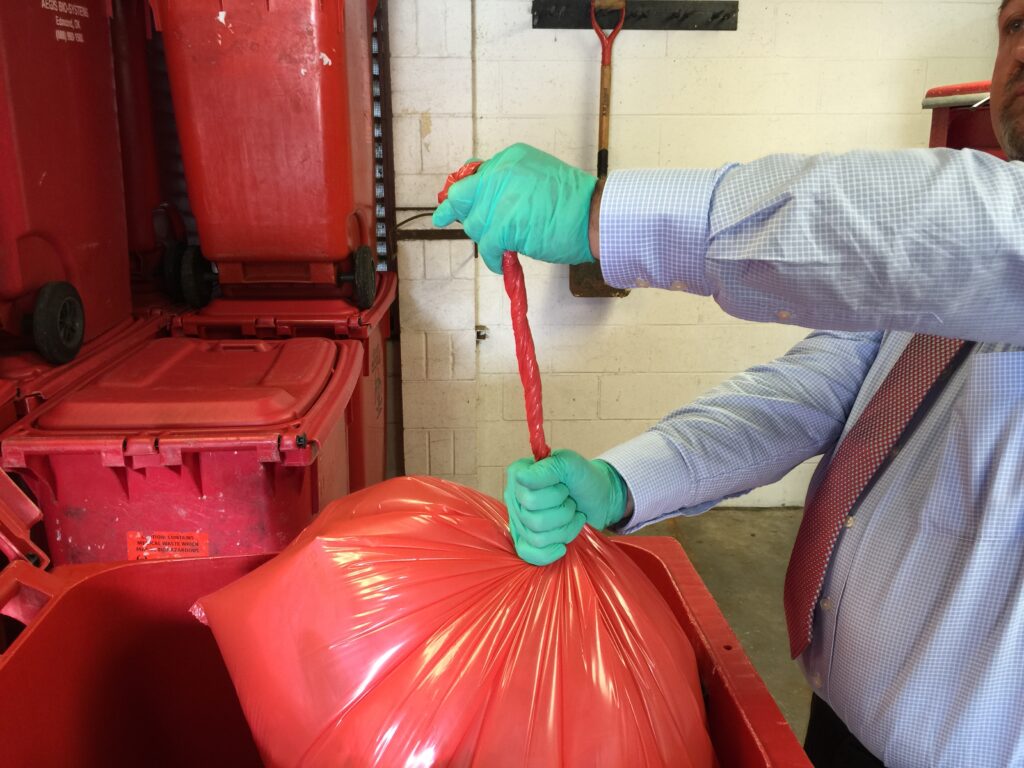Achieving Compliance: How ASMAI Helps Healthcare Facilities Navigate Waste Regulations

Compliance is one of the most critical aspects of healthcare waste management, with regulations that vary across local, state, and federal levels. For healthcare facilities, managing waste compliance effectively is not only necessary to avoid penalties but also to ensure the safety of patients, staff, and the broader community. However, navigating the complex landscape of waste regulations can be challenging.
Advant-Edge Solutions of Middle Atlantic, Inc. (ASMAI) is committed to helping healthcare facilities stay compliant. With our expertise and tailored solutions, we make it easier for healthcare providers to meet regulatory requirements while managing waste safely, efficiently, and sustainably. Here’s how ASMAI supports healthcare facilities in achieving and maintaining compliance.
1. Understanding the Regulatory Landscape
Healthcare waste management is governed by a complex set of regulations at the local, state, and federal levels, each with specific requirements for handling, transporting, treating, and disposing of waste. Key federal regulations include:
- The Resource Conservation and Recovery Act (RCRA), which oversees the management of hazardous waste.
- The Occupational Safety and Health Administration (OSHA) regulations, which ensure the safe handling of waste to protect healthcare workers.
- The Environmental Protection Agency (EPA) guidelines, which address waste treatment methods and emissions standards.
Additionally, there are state-specific regulations that can vary significantly depending on location. This layered regulatory environment requires healthcare facilities to stay informed and adaptable to changes.
2. Comprehensive Compliance Solutions
ASMAI offers comprehensive compliance solutions designed to help healthcare facilities meet regulatory requirements at all levels. Our approach includes:
- Custom compliance assessments: We conduct thorough assessments to evaluate a facility’s current waste management practices, identify compliance gaps, and provide tailored recommendations.
- Detailed waste stream analysis: We analyze waste streams to ensure proper segregation, labeling, and disposal, in line with regulatory standards. This helps facilities avoid cross-contamination and ensures that each type of waste is treated according to legal requirements.
- Regulated Medical Waste (RMW) management: We offer specialized solutions for RMW, which require specific handling, transportation, and treatment methods to prevent potential exposure and environmental contamination.
3. Real-Time Tracking and Reporting
Accurate tracking and reporting are fundamental to compliance in healthcare waste management. ASMAI’s real-time tracking systems provide healthcare facilities with full visibility into the waste management process. These systems capture essential data, such as:
- Waste volumes by category
- Treatment and disposal methods
- Compliance documentation, such as manifests and certificates of destruction
This digital tracking not only helps healthcare providers verify compliance but also streamlines the reporting process. By maintaining clear, up-to-date records, facilities can demonstrate adherence to local, state, and federal regulations, ensuring readiness for audits and inspections.
4. Staff Training and Education
Proper waste management begins with informed staff. ASMAI offers training programs tailored to healthcare providers, focusing on the safe handling, segregation, and disposal of waste. These training sessions cover key compliance topics, including:
- Proper identification and segregation of different waste types (e.g., RMW, hazardous waste, pharmaceutical waste)
- Best practices for handling sharps and hazardous materials
- Safe storage and labeling requirements
By educating staff on compliance requirements and best practices, healthcare facilities can minimize regulatory risks, reduce errors, and improve overall safety.
5. Proactive Regulatory Monitoring
Healthcare waste regulations are subject to frequent updates, and staying compliant means staying current. ASMAI’s regulatory experts continuously monitor changes in waste management laws and guidelines. We keep our clients informed of any updates, ensuring that their waste management practices remain compliant and aligned with the latest standards.
Our proactive approach helps healthcare facilities avoid penalties, adapt to evolving regulations, and maintain a consistent compliance record.
6. Tailored Compliance Programs for Specialized Waste
Different types of waste require specific management and disposal methods to comply with regulations. ASMAI provides tailored programs for specialized waste types, such as:
- Regulated Medical Waste (RMW): Safe handling, transportation, and sterilization to comply with all federal, state, and local regulations. This approach reduces risks of exposure and contamination while ensuring compliant disposal.
- Hazardous waste: Proper containment, transportation, and disposal according to RCRA requirements.
- Pharmaceutical waste: Segregation and disposal according to the EPA’s Subpart P regulations.
- Universal and electronic waste: Handling and recycling to comply with federal and state e-waste rules.
By addressing the unique compliance requirements for each waste type, ASMAI ensures that healthcare facilities can manage all waste streams effectively and safely.
Achieving compliance in healthcare waste management is not just about meeting regulatory requirements—it’s about creating a safe, efficient, and responsible environment for healthcare providers, patients, and the community. Advant-Edge Solutions of Middle Atlantic, Inc. (ASMAI) is dedicated to supporting healthcare facilities at every step, offering comprehensive solutions that simplify compliance and enhance safety.
From real-time tracking and reporting to staff training and tailored compliance programs, ASMAI helps healthcare providers navigate the complex world of waste regulations with confidence. By partnering with ASMAI, healthcare facilities can focus on their core mission—providing quality care—while knowing their waste management is in expert hands.
